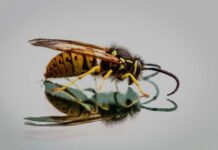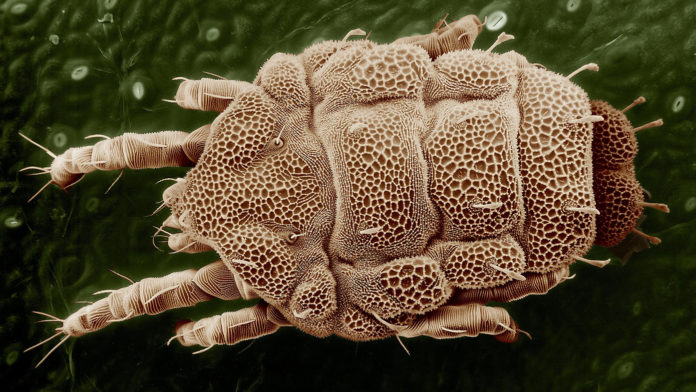When it comes to infectious diseases, most people think of the health consequences for infected hosts. But fear of parasites can alter the lives of potential hosts, even in health.
It’s a concept called the ecology of fear: potential prey or host animals live their lives avoiding predators and parasites by reading the environmental indicators of danger. There are telltale smells, sights, and sounds that lead to changes in where they choose to forage or reproduce.
Parasitologist Lien Luong, associate professor of biological sciences at the University of Alberta, looked to fruit flies (Drosophila nigrospiracula) and parasitic mites (Macrocheles subbadius) to examine how parasites affect healthy hosts. And she found that there are long-term consequences for simply living in an infectious world. In the presence of mites, fruit flies use more energy, produce fewer offspring, and live shorter lives.
The study was published in Parasitology.
Luong also found that the fruit flies had to balance their avoidance of parasites with the quality of available habitat. Drosophila nigrospiracula is a species native to the Soronan Desert and they feed and breed on decaying columnar cactus tissue. They prefer to deposit their eggs in host plant tissue that already contains other Drosophila eggs.
In homogeneous environments, the fruit flies did avoid mites (86% of eggs were laid at mite-free sites). However, in heterogeneous environments where availability of niche sites is more fragmented, site quality was the more important factor. The availability of host cactus tissue (78% of eggs were laid in infested cactus) and the presence of conspecific eggs (65% of eggs were laid at infested sites with other Drosophila eggs) encouraged fruit flies to lay their eggs despite mite infestation.
With growing concerns over habitat destruction, this adds to pressure on animals to ignore their instincts to avoid parasitic infection and lay their eggs in dangerous places.
The cost of living near parasites goes beyond the effects of actually becoming infected. To understand the ecology of parasite-host relationships, researchers also need to understand the complex behavioural and physiological changes that happen in the entire population, including in healthy hosts.





































